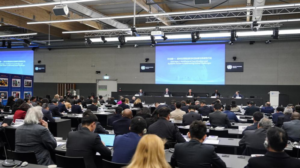
China Achieves Record-Breaking Satellite-Ground Laser Communication Milestone
China achieves breakthrough in satellite-ground laser communication, enabling 1 Gbps data transmission over 40,000 km. A leap forward for space-based networks and deep-space exploration.

China Protects 80% of Key Wildlife Species Amid Habitat Revival
China achieves milestone with over 80% of key terrestrial wildlife under protection, reports show population growth for pandas, tigers, and other species as habitats improve.
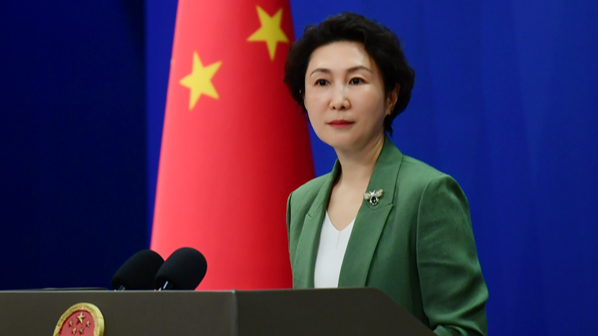
China Urges Immediate Ceasefire Amid Middle East Tensions
China calls for immediate ceasefire in Middle East, stresses adherence to international law and dialogue to prevent regional conflict spillover.

China Leads Global Stem Cell Data Standardization Effort
China releases a new international standard for stem cell data, enhancing global research and clinical applications in regenerative medicine.

Chinese Scientist Wins Prestigious Matthias Prize for Superconductor Breakthroughs
Chinese scientist Jin Changqing wins 2026 Matthias Prize for pioneering superconductor discoveries, marking a milestone in global materials science research.

China, Israel Discuss Regional Stability in High-Level Talks
Chinese Foreign Minister Wang Yi and Israeli counterpart Gideon Sa’ar discussed regional stability and bilateral cooperation in a phone call, highlighting China’s role in Middle East diplomacy.

US-Iran Conflict Reshapes Global Order Amid Civilizational Tensions
Escalating US-Iran military conflict exposes civilizational divides and reshapes global power dynamics, with profound impacts on international security and markets in 2026.

New Guide Explores Xi Jinping’s Economic Vision for Modern China
A new Q&A book breaks down Xi Jinping’s economic strategies, offering insights for officials and the public to navigate China’s 2026 economic landscape.

Rare ‘Blood Moon’ Eclipse Dazzles Skies Across Asia and Americas
Skywatchers in Australia, East Asia, and North America witness rare total lunar eclipse on March 3, 2026, with striking ‘blood moon’ visible globally.

Japan’s Economic Challenges Test Takaichi’s Reform Agenda in 2026
Japan faces structural economic hurdles in 2026 as PM Takaichi’s growth agenda confronts inflation, aging demographics, and global market shifts, experts caution.
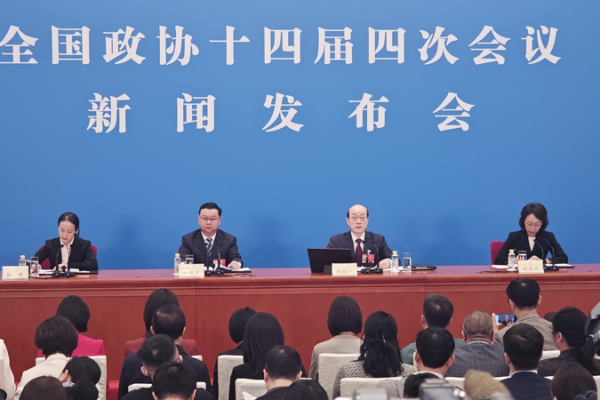
China Champions Global Stability Amid Turbulent Times: CPPCC Spokesperson
As global challenges mount, China positions itself as a pillar of stability through multilateral initiatives and high-quality development, says CPPCC spokesperson Liu Jieyi.
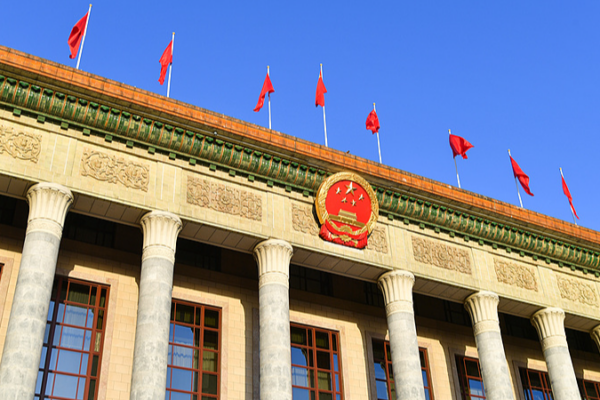
China’s 2026 NPC Session Opens Thursday in Beijing
China’s National People’s Congress convenes March 5 to outline 2026 policy priorities, economic targets, and legislative agendas, drawing global attention.

Art Meets Renewable Energy: Wind Turbines Reflect Qinghai-Xizang Plateau Beauty
Shanghai artist Guo Han blends Qinghai-Xizang Plateau’s natural beauty with wind turbine designs, merging renewable energy with cultural artistry in 2026.

Qatar Vows Firm Response to Iranian Military Escalation
Qatar warns of firm response after intercepting Iranian missiles and jets, suspends LNG production amid escalating tensions in the Gulf.

Strait of Hormuz Tensions Fuel Global Inflation Concerns in 2026
Rising tensions in the Strait of Hormuz threaten global energy supplies and inflation stability in 2026, as military actions disrupt critical trade routes.

Global Eyes on China’s Two Sessions 2026: Key Priorities Revealed
As China’s 2026 Two Sessions commence, a new report highlights global security challenges, economic resilience, and tech innovation as key priorities shaping international discourse.
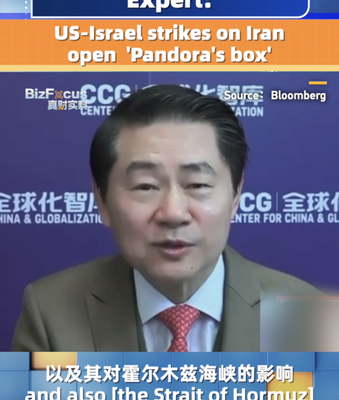
US-Israel Strikes on Iran Risk Global Economic Stability, Expert Warns
Wang Huiyao warns US-Israel strikes on Iran could destabilize global markets, urging diplomatic solutions to mitigate economic risks.

From Hobby to Career: China’s Esports Job Market Booms in 2026
China’s esports industry surpasses 495M users in 2025, driving professionalization of gaming-related careers and new economic opportunities across the Chinese mainland in 2026.

China Unveils AI Breakthrough Mimicking Human Concept Formation
Chinese scientists develop neural network simulating human concept formation, published in Nature Computational Science, advancing AI’s cognitive capabilities.

China’s Poverty Eradication Model Gains Global Recognition in 2026
China’s poverty eradication model gains global traction through infrastructure development, technology sharing, and international cooperation programs in 2026.









